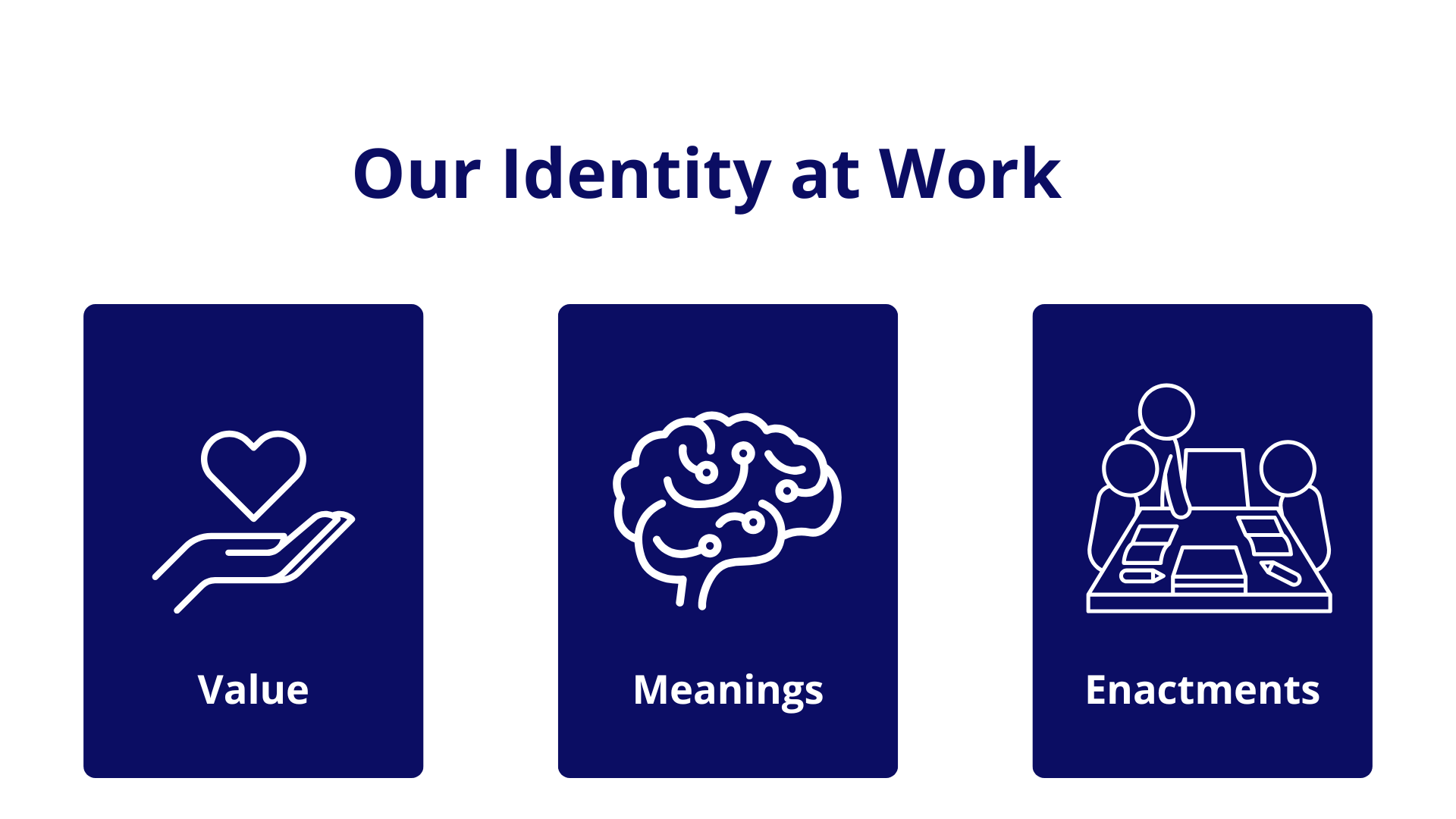Career Change and Identity Loss: How Can Coaching Help?
This is part one of a three-part series.
Changing Roles, Changing Selves
When you change jobs, you’re not just switching roles—you’re renegotiating your identity.
By some estimates, the average person may go through 3-7 different careers in a lifetime, perhaps more for younger generations. [1] As a professor turned career and wellness coach (and before that, a communication consultant, yoga instructor, and actress), I’m no stranger to this.
If you’ve ever considered a big career change, you already know that this impacts your identity. What you might not know is why career change shifts identity and how coaching can help.
It’s worth noting that career change is often triggered by something out of your control: job loss, the need to relocate, an uptick in caregiving responsibilities, or a change in family circumstances like divorce or even the death of a loved one. In my case, it was a health crises that sparked the recent need for change. When career transition is a result of these bigger shifts in your life, it can be even more difficult to cope with.
Research suggests career changers move through three phases of identity shift: grief, limbo, and reconstruction. [2] As best-selling author and career development expert Herminia Ibarra writes, “Identity transition is the process of disengaging from a central, behaviorally-anchored identity while exploring new possible selves, and eventually integrating an alternative identity.” [3] Acknowledging this allows coaches to normalize the discomfort and focus on future visioning rather than just logistics.
What Are You Grieving?
According to Professor Sarah Wittman of George Mason University’s School of Business, one model for understanding identity loss during career change comes from the field of organizational behavior [4]. It turns out that changing careers can upset the “value, meanings, and enactments” that contribute to our identity.
“Value” refers to the self-esteem we may get from our career. Perhaps you work for a trendy brand or a prestigious institution. When I was a professor, I felt pride in being part of the larger project of higher education—even though I worked at a small, regional university. What parts of your career help you feel valued and valuable?
“Meanings” refer to the connotations of your career. A firefighter is “brave,” a doctor is “noble,” a preschool teacher is “nurturing.” If I thought of myself as “intellectual” as a professor, perhaps I now think of myself as “entrepreneurial” as a coach. What word or words do you associate with your current career?
“Enactments” are the daily routines that reinforce our identities. What kind of people do you encounter at work? Who are you to them? When you go to work, do you enter a grand foyer or a scrappy, one-room office? As a professor, I was a mentor surrounded by students on a campus steeped in tradition. That environment helped me know who I was. What parts of your current work routine help tell you who you are?
Coaches can build on Wittman’s framework for how career change affects identity by helping clients explore what feels lost and what might be carried forward.
How Can Coaching Help?
Awareness coaching is perfectly suited to exploring these kinds of internal shifts. And clients may discover that what looked like stuckness was actually an unexamined discomfort about who they are becoming.
Reflections inspired by the Value, Meanings, and Enactments framework might include:
What do you miss about your old job?
Who did you get to be in that role?
Which parts of your identity still feel true for you now?
What do you want your new career to mean to yourself or others?
What parts of your life—other than work—help you feel valued?
When you envision the routines of your new career, what do you see?
Once clients begin naming what feels lost, they can start reconstructing meaning toward their desired future.
Telling Your Career Story
Narrative coaching is one approach that can help clients bridge the gap between present and future selves. Instead of focusing on goals or plans, narrative coaching invites clients to examine the stories they tell about who they were, who they are, and who they’re becoming. [5] By authoring new narratives, clients begin to see old roles as chapters rather than fixed identities.
For example, I might have gone from saying, “I was a professor, and now I’m starting over as a coach,” to “I’ve always been someone who helps people grow—just in different ways.” Reframing the story helps clients move from loss to meaning, an essential step in working through the grief of career transition.
Next up: Guiding Limbo and Reconstruction
In part two of this series, I’ll introduce positive psychology tools for career coaching and how strengths-focused coaching can help clients navigate career change. In part three, I’ll look at how tiny experiments help us become who we’re hoping to be during the limbo and reconstruction phases.
If you’re considering a career transition, you can start exploring with me by scheduling a free, 30-minute consultation.
This article was adapted from my workshop, “Guiding Identity During Career Transition,” presented at the University of Pennsylvania’s Career Services on November 5, 2025.
References
[1] The Bureau of Labor Statistics reports adults hold about 12 jobs in a lifetime, tracking “job changes” rather than “career changes.”
[2] Letting Go and Moving On: Work‑Related Identity Loss and Recovery
[3] Identity Transitions: Possible Selves, Liminality and the Dynamics of





